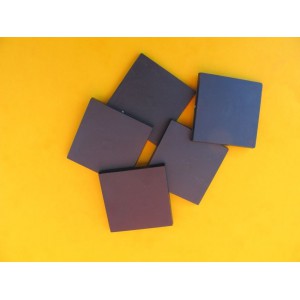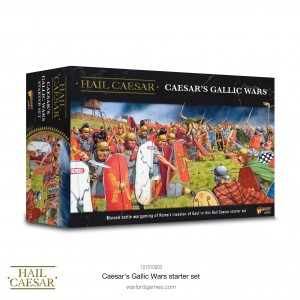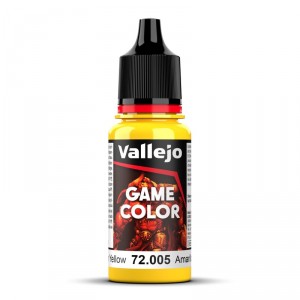Macedonian Successor Starter Army
Zestaw startowy, dzięki któremu zbudujesz armię z okresu 3-2 wieku p.n.e. Zawiera ponad 110 modeli, w tym falangę złożoną ze 100 żołnierzy.
WG-102614001
5060393704591
Powiadom mnie kiedy będzie dostępny (dla zalogowanych)
 Zamawiając teraz ten produkt otrzymasz 18 Punktów Klubu Gracza.
W Twoim koszyku znajdzie się wtedy 18 punktów , które zamienisz na bon o wartości 7,20 zł.
Zamawiając teraz ten produkt otrzymasz 18 Punktów Klubu Gracza.
W Twoim koszyku znajdzie się wtedy 18 punktów , które zamienisz na bon o wartości 7,20 zł.
Opakowanie zawiera plastikowe, metalowe bądź żywiczne modele do gry. Modele są wieloczęściowe, do sklejenia i pomalowania. Farby i klej nie stanowią części zestawu.
Opis produktu w języku angielskim:
A Perfect balance of core strength, fast cavalry, and a hard hitting elephant regiment. This starter set can be used to represent forces for the Seleucid (mid 3rd-2nd centuries BC), Ptolemaic (mid 3rd-1st centuries BC), or the Pyrrhic (late 3rd century BC) empires.
Seleucid (mid 3rd-2nd centuries BC)
Seleucus emerged from the civil wars that followed Alexander the Great’s death as the master of much of the old Persian empire. The dynasty that he founded is known as the Seleucid dynasty, and the Seleucid empire lasted in some form or other until the annexation of Syria by the Romans. The Seleucid list in the Hail Caesar Biblical and Classical supplement represents the armies of the empire before the rot set in, when the Seleucids could still give the Romans a good run for their money and contend for the hegemony of the Hellenistic East.
Although originally based upon Babylonia, the centre of the Seleucid empire gradually shifted to Syria and its capital of Antioch – just one of many cities so-named by Seleucus to honour his father Antiochus, who was a general of Alexander’s father Philip. At its height the Seleucid Empire stretched as far east as India, to Sogdia in the north east, to the borders of Egypt in the south and westward as far as the Aegean.
Ptolemaic (mid 3rd-1st centuries BC)
Following the break up of Alexander the Great’s empire Ptolemy I emerged as the ruler of Egypt. The dynasty he founded was to last the longest of all of the Successors, ending only with the death of Cleopatra in 30 BC. The chief rival of the Ptolemies was the Seleucid empire to the north.
The two Hellenistic kingdoms fought incessantly for control of the territory that lay between Egypt and Syria. Elephants were an important part of these opposing armies. The Ptolemies began with a herd of Indian elephants but, being unable to obtain replacements, attempted to train African elephants instead. These proved unsatisfactory, being the smaller elephants native to North Africa. In a confrontation between the two kinds of elephant the Indian beasts of the Seleucids had the advantage.
Pyrrhic (late 3rd century BC)
Pyrrhus of Epirus was one of the greatest generals of his age – it was in his blood – after all he was second cousin to Alexander the Great. He became King of Epirus and Macedonia and led armies against the Romans in support of the Greek cities of southern Italy (known as Magna Graecia). The victories he won during that campaign were achieved at such cost to his own army the term ‘pyrrhic victory’ passed into common usage to describe a victory almost as crippling to the winners as the losers.
The Epirote army is typical of the western Successors in that it is based upon the pike-armed phalanx supported by lighter infantry and cavalry. We have represented the Macedonian and Epirote cavalry as armed with light spears, which seems more in keeping with the general effectiveness of Greek cavalry following the days of Alexander. The proportion of pikes in Pyrrhus’s armies fell in succeeding battles.
The Successor army box contains:
- 100 plastic Phalangites
- 8 metal Companion Cavalry
- 1 metal and resin Successors War Elephant
- 3 Phalangite shield decal sheets and plastic bases
Models supplied unassembled and unpainted
- Typ Jednostki Zestawy
- Typ Produktu Zestawy Armii
Odbiór osobisty w sklepie przy ul. Lubicz 34/6 w Krakowie
Wybierz opcję wysyłki 'Odbiór osobisty'. Możesz zapłacić z góry lub na miejscu. Otrzymasz powiadomienie kiedy towar będzie gotowy do odbioru. W przypadku produktów oznaczonych 'Wysyłka w 24 godziny' i dostępnych w żądanej ilości Twoje zamówienie będzie gotowe do odbioru od razu!
Czas na odbiór
Twój towar od momentu skompletowania będzie na Ciebie czekał do 7 dni.
Producent
Warlord Games Ltd
60 The Ropewalk, Nottingham, NG1 5DW
VAT Number: 925037927
Company Number: 6400769
info@warlordgames.com
The company is registered in England and Wales.
Podmiot odpowiedzialny
Vanaheim Bartosz Matychowiak
Lubicz 34/6
31-512 Kraków
Polska
sklep@vanaheim.pl
Bezpieczne płatności
bezpieczeństwo transakcji gwarantowane przez
Szybka wysyłka
24 godziny od otrzymania płatności, zaufani kurierzy

Zwrot towaru
możesz zwrócić towar do 14 dni, otrzymasz 100% zwrot pieniędzy
Kontakt
telefon : +48 12 352 39 80
w godzinach 9:00 - 15:00

Często kupowane razem :
Zobacz też :
-
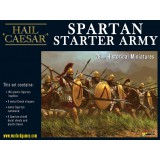
Spartan Starter Army
To jest Sparta! Z tego zestawu złożysz ponad 170 figurek, w tym 160 spertańskich hoplitów.
376,00 zł Zobacz
-
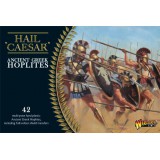
Ancient Greek Hoplites
110,00 zł Zobacz
-
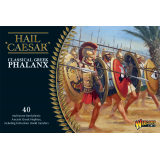
Classical Greek Phalanx
110,00 zł Zobacz
-
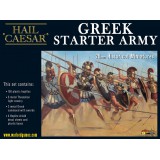
Greek Starter Army
Z tego zestawu skompletujesz armię Greków. Zawiera ponad 170 figurek, w tym 156 hoplitów
376,00 zł Zobacz
-
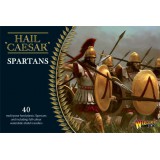
Spartans
110,00 zł Zobacz















































